As part of the support provided by San Diego Zoo Global for our 2017 Wildlife Trade Symposium, we were able to support nine delegates from developing countries through a bursary scheme. Below are just a few testimonials on how their attendance at our Symposium has since helped them on their path to addressing the illegal and unsustainable wildlife trade.
Previously a project manager at Zoological Society of London (ZSL)-Philippines, I implemented Project Seahorse’s iSeahorse, a citizen science initiative with components of policy advocacy relating to CITES and community-based marine protected area establishment. Attending the IWT Symposium was a great opportunity to meet and network with passionate people who are working on illegal wildlife trade. The break-out sessions or workshops were helpful to deepen my knowledge on specific areas, particularly the ethical and moral issues concerning biodiversity security. Further, I like ithe set up during meal times as it provided more opportunity for the participants to talk about research interests and the projects. I observed though, that studies and projects of illegal wildlife trade of marine organisms were not well represented in the symposium. As a marine biologist and conservation practitioner working on seahorses and marine ecosystem, I think there’s a huge gap in conservation efforts dealing with marine animal illegal wildlife trade. My attendance at the symposium has increased my interest in addressing the illegal and unsustainable wildlife trade. Currently, I am one of the cohorts of MPhil in Conservation Leadership program at University of Cambridge and I am looking at placement projects focusing on working with the government, policy development and enforcement-wise, on how to tackle illegal wildlife trade.
– Chai Apale from Philippines, current graduate student at University of Cambridge.
My interest is in Biodiversity conservation issues and sustainable use of wildlife resources. Through a bursary, I participated in the 2017 Wildlife Trade Symposium in Oxford, and I had a great experience. This conference provided an ideal platform for learning and exchanging of ideas as it was an international forum, and consisted of researchers, students, agency personnel, conservation stakeholders, and other wildlife conservation practitioners. The unique feature of the conference was its interactive sessions, which promoted informative discussions on the conundrums and ethical collisions associated with wildlife trade. The symposium has shaped and increased my understanding and knowledge of the illegal and unsustainable wildlife trade. And this has contributed as guidance for my PhD research which focuses on increasing knowledge of bushmeat (meat of wild animals) hunting and trade in the Sudan savanna zone of Ghana by documenting dependence on bushmeat, extent of the bushmeat trade, and drivers that enable or inhibit bushmeat exploitation, in order to identify potential intervention measures on how to best manage the threat caused to the long-term survival of wildlife populations. I believe the Wildlife Trade Symposium is a ground-breaking initiative by the Oxford Martin Programme on the Illegal Wildlife Trade at the University of Oxford.
– Hannah Naa Kai Sackey from Ghana, current post-graduate student at University of Ghana



